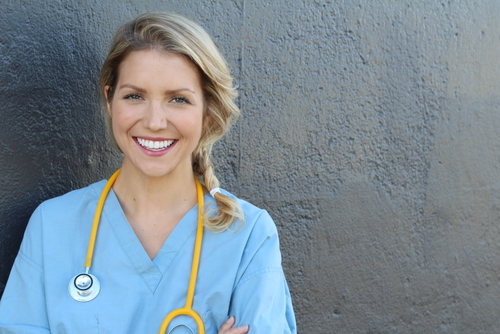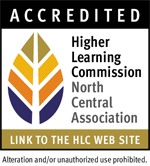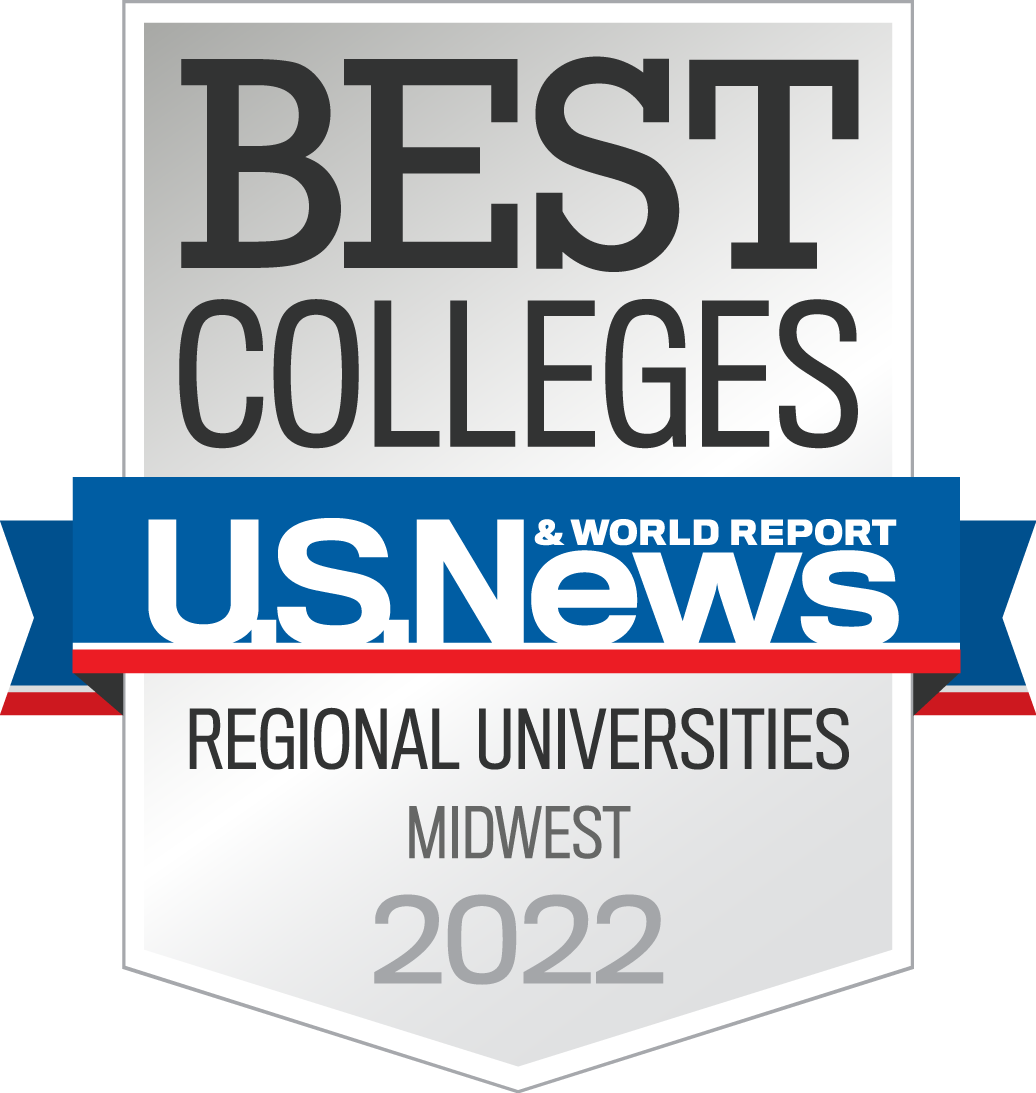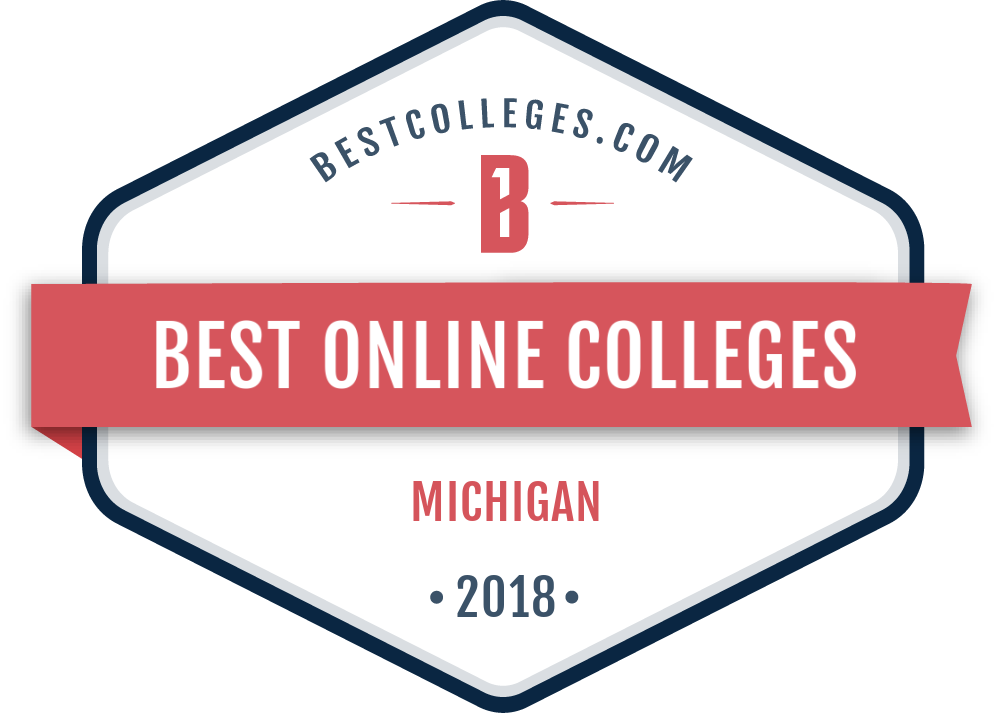Nurses’ Guide to Medical Missions Trips - Serving Those in Need

If you are involved in the medical community or are studying to become a doctor or nurse, chances are you already have a passion to help people at least partly fueling your current career goals.
As you work in state-of-the-art facilities, you may find yourself wondering if you could put your knowledge and skills to use in a way that benefits those less fortunate and without access to care. If you have ever found yourself thinking along these lines, you may want to consider a medical missions trip. Spring Arbor University’s online nursing degrees equip BSN and MSN/Nurse Practitioner students for nursing abroad. You can earn your degree while continuing to work and prepare to improve patient care with a top ranked degree.
What is a medical missions trip?
Medical missions trips give medical professionals and medical students the chance to travel and apply their knowledge to help those who otherwise might not receive essential medical services – including in the event of natural disasters like Hurricanes Irma and Katrina. Over the past two decades, the number of people heading overseas to participate in medical missions trips has grown considerably, and with this growth has come a continued emphasis on helping those in need through the rise of portable technology and greater ease of safe travel.
Short term missions trips started to become popular in the 1960s when air travel became accessible. The popularity has grown to the point that today, America sends over 2 million people on short-term missions trips every year. While not all of these are medical in nature, these statistics show the popularity of heading overseas to serve.
Originally, medical missions trips were organized by religious groups, but over time most have opened up to allow anyone who is interested to participate. On the other end of the spectrum, many hospitals and medical centers organize their own missions trips or partner up with specific organizations; because these are open only to employees, they often do not require the use of PTO. If medical missions trips are something you have considered, you will need to do some research before you embark.
Here is a guide intended to help you understand your options for medical missions work, choose the right trip and head out safely for your mission experience overseas. We will cover:
- Criteria to consider when deciding to pursue medical missions work
- Career benefits
- How to pick a credible program
- Religious considerations
- Travel precautions
- Travel nursing – a longer term alternative?
Criteria to Consider for Medical Missions Trips
If you are considering taking a medical missions trip, you need to understand that not all trips are created equal. There are many different criteria that are considered for these trips, and you may qualify for ones you didn’t even realize until you take a closer look.
First, you need to understand that not all of these trips require a completed medical degree. Most require a measure of medical training, but it is possible to go on a medical missions trip with no medical knowledge whatsoever. There are trips available for those in pre-med and pre-nursing programs, those looking for medical internships and those looking for charitable experience with little training at all.
Second, the duration of the trips needs to be considered. Sometimes, short-term trips are designed to bring necessary help to a remote area but not function as a long-term solution. Others are designed to bring long-term treatment to people who need it. The duration can be just a few weeks and several months or years.
Finally, the type of treatment is another consideration to make. Sometimes these trips will focus on one particular treatment or specialty area. For example, a trip may focus entirely on dental care, while another may focus on providing surgical care to a people group who normally would not have access. If you are trained or are training in a particular field, you may wish to look for opportunities specifically within that field. As you are considering your options and deciding if a medical missions trip is right for you, and which one is right for you, here are some considerations you will want to make:
- Is there a specialty area where you wish to provide care? Are you trained in dental work, surgical care, women's health, specialized nursing, pediatrics, orthopedics or some other specialty area? Your specialty may be exactly what a particular organization is looking for in a medical missionary.
- Consider your experience. Experience is going to be a criteria for certain types of trips, so consider and list your experience as you are applying for trips. If you don't have much experience or a medical degree, don't worry. There are many organizations that offer placements for volunteers and medical interns who may not have degrees or clinical experience. In these roles, you will provide support to licensed practitioners and get real-world experience in the medical field, without actually having a degree.
- Decide how long you wish to serve. While you may wish to serve indefinitely, the reality is that you have other responsibilities and roles to fill. Determine the length of time that you will be able to dedicate to your medical missions trip, whether it is just a few weeks or an extended trip that goes on for months. Short-term trips often work alongside established ministries or medical practices, while long-term trips will set up their own clinic and location.
- Consider how much you can afford. While long-term missions might pay you for your work, most short-term missions work is volunteer-based. Some will pay for expenses only, while others may actually charge you a fee to participate, or else ask you to help out with fundraising. Do not hesitate to ask about any financial aid or support opportunities.
- Determine if you wish to stay in one spot or travel. Some programs take medical care to a variety of places and people, while others set up a clinic in one particular area and stay put. Decide which is the right choice for your needs and your goals.
- Consider your specific geographic preferences. Factors to consider here include climate, safety, and even culture. You may wish to participate in a dangerous area where many injuries are sustained and medical assistance is particularly critical, or you may decide that an area’s policies against specific groups of people are too much for you to handle. These are all valid perspectives, but you must know your own boundaries. Take some time to research your areas of interest and decide where you fall.
- Consider religious preferences. Many medical missions trips are connected to religious organizations, though not all are. You may have to be willing to participate in the religious training or be a follow of the particular faith of the organization you are considering in order to serve. If you follow a particular faith, look for opportunities within your organization. If you do not, then consider looking for non-religious opportunities to provide medical care in impoverished areas.
For more information about the criteria for selecting a medical missions trip, visit:
- RN Central: My Mission is a Medical Mission
- International Volunteer HQ: Medical Missions Trips
- Focus Campus: 7 Reasons You Should Say "Yes" to a Mission Trip
- Osteopathic.org: When Choosing a Medical Missions Trip, Continuity of Care Matters. Here's Why
Professional Benefits of Medical Missions Trips
Going on a medical missions trip brings a number of intrinsic benefits. You get the benefit of knowing you did something to help those who needed it most and the benefit of knowing that you have done something to further your faith around the globe. But what about professional benefits? Can you benefit your career by going on a medical missions trip? The answer is yes.
- Going on a medical missions trip will stretch you and challenge you both personally and professionally. This can have a number of professional benefits, because it will make you a stronger practitioner. It will also help you develop the tenacity of character that will make you a better doctor or nurse in your future career.
- Medical missions trips also provide more hands-on clinical experience. For instance, a doctor in the United States will rarely take vitals or chart patient history, leaving that job to the nurse, but in a medical missions clinic, you will be asked to do these important tasks. This can help you understand all of the intricacies of medical practice and the support professionals you have on hand.
- Medical missions work can look really good on a resume as you seek a future career. Many employers like to work with people who are compassionate and dedicated, and medical work will show that you are both.
- Finally, your medical missions work can help solidify your passion for medicine. By seeing just how well your career can help others, you will be inspired to continue your training and complete your degree.
Of course, there are potential career drawbacks to consider. First, going on a medical missions trip can take time away from your course of study, potentially postponing some of your career milestones. Another potential drawback can occur if you are delivering medical care you are not qualified to administer. Later, when you are before an admissions committee, you may find that this experience is a drawback to finishing your credentials.
Finally, medical missions work is costly. So is medical training. You may not have the budget to do both. So here are some important steps to take to ensure you are going on a medical missions trip that will support, rather than hinder, your career goals.
- Choose the right organization or medical missions trip. The organization you travel through can either hinder or help your future career goals. Choose a trustworthy, well-respected organization to ensure that you are not doing any professional harm.
- Fine-tune a specific skill. If you want your medical missions trip to have the biggest professional impact, choose to serve in an area where you are planning to focus your profession, and use the trip as an opportunity to fine tune the medical skill in question.
- Focus on personal growth. While on your trip, take the time to grow personally. A doctor or nurse who does his or her job well is one that is a well-rounded individual, not just a consummate professional. While serving on a foreign field, you will have to learn to think on your feet and get creative in your medical service, and these all will help you be a better medical caregiver when you return home. Consider keeping a journal or documenting your experiences and realizations. Make time to travel and speak to the locals, as well as explore local culture.
- Don't rely on medical missions as a means to get into professional school. Medical schools and nursing schools are not looking for medical missions trips when reviewing candidates. While charitable service can help, you need to take a medical missions trip for other reasons. If your main professional goal is to use the experience to launch your education or your career, you may want to save some money and get that charitable experience back home.
- Ensure you are only doing care you are qualified to perform. Yes, it's tempting to grab a needle and start administering vaccines while you are on your missions trip, but if you are not qualified to do this, don't. It will actually have a negative effect on your future admissions if you are boasting about the care you delivered that you are not qualified to deliver. Find ways to help that do not breach any professional or ethical standards.
For additional information on the benefits and drawbacks of medical missions, visit:
- The Journal of Humanitarian Assistance: Medical Liability in Humanitarian Missions
- Dermatology Times: Who Really Benefits from Medical Missions?
- Tokio Marine HCC: Five Tips for Your Missionary Travel Experience
- American Academy of Otolaryngology: What to Expect from a Medical Mission
How to Pick a Safe Medical Missions Trip
If you've decided that a medical missions trip is the right step for you and your personal and professional goals, then you are going to need to find the right one. Again, not all trips are created equal, and you want to know that you have found a good one that will help your career goals and keep you safe while traveling. Not only can you watch for signs that you have chosen a good trip, but you can also be aware of potential red flags that indicate a poor choice. By knowing what to look for, both the good and the bad, you will be able to avoid a dangerous trip or a professional tragedy.
Here are some considerations to make when you are looking for the right trip that will help you find one that will be a blessing, rather than a drawback.
- Choose an organization with experience. A well-run medical missions organization will have coordinated ample trips in the past. Choose one that has enough demonstrated experience to prove that they know what they are doing. This will help ensure that you do not run into any problems, because the organization will have the knowledge and experience necessary to plan your trip with minimal problems.
- Choose an organization with strong leaders. Leadership is going to be essential as you head overseas, so make sure that the organization has leadership in place that understands what you are doing and the country you are going to serve in. Who is in charge of the organization – whether individuals or associated groups, dig deep into the credentials and history behind the mission’s influencers. Do they have any agendas other than service?
- Reach out directly to former participants. Don’t just pursue vetted testimonials; use LinkedIn and other means – including online forums like Reddit - to identify past participants and reach out to them for feedback.
- Look for an organization that is prepared and organized. While missions work should have some flexibility built in, a group that is unprepared is a sure sign that the organization is less than ideal. You should be able to easily access individuals who can explain to you the timetables you can expect, documents you need to provide, as well as details about what sort of experience you will have.
- Select an organization with a clear emergency plan. Risk is always around you, but when you travel overseas that risk increases significantly. When researching organizations, be sure to ask what their emergency management procedures are. If they are not clear on this, walk away and find a different group to join.
- Find an organization that provides appropriate training. While your medical training is handled by your medical or nursing school, training for work on the foreign field should be handled by the missions agency. If a missions agency does not provide training, it is a red flag that the entire trip is going to go poorly. Make sure this is accredited training, so that you don’t get burned by liability issues or even just wasted time.
- Ask about government and legal red tape. Make sure the organization has properly planned for all government requirements for medical missions work, so your time and money is not wasted by red tape you cannot get through. Evidence of a good organization includes clear breakdowns of documentation you need to provide including visas, evidence of vaccinations, etc.
- Be wary of an organization promoting primarily tourist trips. You are going on a missions trip to be a blessing and bring relief to people who need it. While there may be some tourism involved, if the main focus appears to be sightseeing, look for a different trip.
- Avoid trips that do not account for a continuation of care. In medical missions trips, one of the worst things you can do is head to a country, provide medical care, then leave without any further care. You provide the people with a glimmer of hope, then leave them to fight for themselves. Even worse, sometimes medical missions work that is not planned well can disrupt the local medical and healthcare infrastructures. Look to work with an organization that provides continuation of care, either through training locals to continue to care for the patients or through ongoing missions work in the future, and works with any local healthcare providers.
How Does Religion Affect Medical Missions Trips
Medical missions trips appear to be religious in nature, and many of the organizations that promote them are religious based, but how much of an impact does religion really have? Can a non-religious doctor or nurse head out on one of these trips to deliver medical care without promoting a religious belief? The answer depends on the group chosen.
Many groups take their religious duties very seriously. Their goal is not only to heal the bodies of the people they are ministering to, but also to minister to their hearts. These organizations will only choose medical providers who are of like faith and practice. If you are a Christian or a follower of another faith, these trips are a great fit. There are also organizations that do not have a religious focus. While they may be run by religious entities, their primary focus is on providing medical care to those who need it most. Some are also run by secular organizations and focus on medical care and work projects with no religious focus at all. Both health career-oriented students and professionals who are not strong in a particular faith may be more comfortable with one of these trips.
So which is right for you? The answer will depend on your goals and your faith. Here are some considerations to make.
- Ask yourself what your goals are for your trip. Are your goals primarily to help physically needy people through your medical knowledge? Are your goals primarily to expand your cultural awareness and see another part of the world while continuing to practice medicine? If so, then a non-religious trip is a good fit. Are your goals to spread the gospel while you are also delivering needed medical care? Do you want to minister to the souls of people as well as their bodies? Then consider looking for a religious medical missions trip to embrace.
- Consider your comfort in sharing your religious faith. If you are a Christian, consider how comfortable you are witnessing your faith to others. If you partner with a religious organization, this will be part of your job. Make sure that you are comfortable with the extent and means by which you will be expected to transmit your faith, as well as with the message of the organization with which you are working.
- Find a trip that lines up with your religious beliefs. Even among Christians, there are quite a few different types of beliefs. If you are going to take a religious trip, make sure that it is in line with your particular beliefs. You are going to be serving side-by-side with others, so you want to ensure that they are people whose faith you can stand with.
- If you do not have a strong faith, consider a secular trip. If your primary goal is to support your medical learning and knowledge, consider looking for a secular medical missions trip.
Do you need help finding a medical missions trip to take? Here are some resources that might help:
- International Medical Relief
- Mercy Ships
- MedicalMissions.org
- Samaritan's Purse
- Christian Medical and Dental Associations Missions
- MissionFinder.org: Medical Missions Outreach
- United Planet: Mission Trip Abroad
- Mission to the World: Medical and Health
- Orphan's Heart: Medical Missions Trips
- Projects Abroad: Volunteer Medical Internships Abroad
- Foundation For Peace: Nursing and Medical Missions Trips
What Precautions Should You Take Before and During Your Trip?
Traveling overseas is always a risk. If you are embarking on a medical missions trip, it is important that you take measures to protect yourself. While most organizations you would travel through already have precautions in place, you also should take some precautions personally. After all, your goal is to return home with stories of your travel and a heart full from your weeks or months of service, not because you were struck by a tragedy. Here are some general tips to consider any time you travel overseas:
- Always check for travel advisories or warnings for your destination country. International problems can pop up at a moment’s notice, making it dangerous to travel to a particular country. Always check with the department of state before you leave.
- Tell someone where you will be and how to reach you. Make sure there are people back home who know how to contact you should an emergency happen. Even if you are in a remote area, have a way for people to check in with you should it be necessary. Plan this before you leave with the help of your missions agency.
- Get your paperwork in order. Is your passport up-to-date? Do you need a visa? Do you need an international driver’s license? Do you need auto insurance, health insurance, etc.?
- Get any necessary vaccinations. Check the country information page on the Department of State website or the travel destinations page on the CDC website to see if there are any vaccinations you may need for your destination country. Carry any necessary proofs or medical tests that show you are immune to these dangerous diseases both when leaving the United States and when returning.
- Talk to your bank and credit card companies about your trip. Find out from them about the best way to manage money overseas. You may need a special international credit card to ensure you have emergency funds while traveling.
- Consider purchasing additional insurance. International travel insurance and evacuation insurance can ensure you are protected if you face a crisis or a health issue overseas.
- Use the Smart Traveler Enrollment Program. Register your trip with the nearest U.S. Embassy or Consulate before you go using this free service.
Here are some tips that are specific to medical mission work:
- Be wary of food and water. Many poor parts of the world have contaminated water and food. Make sure you do not eat or drink anything that could be at risk, and talk to your missions agency about what is safe to consume. If in doubt, opt for bottled water.
- Travel with a group. Avoid traveling from place to place in your destination country alone. Not only could you get lost, but you could also be a target for theft. Go in groups when you need to travel from place to place.
- Be careful with medical gear. Because it is in short supply in your destination country, your medical gear is at high risk for theft. Be cautious with it, and make sure it is always stored safely.
- Be careful with waste disposal. Protect both yourself as well as those around you by being careful to dispose of needles, syringes and biological waste appropriately. Familiarize yourself with local policies, and use your professional opinion to make sure you are comfortable or decide whether there are further precautions you need to take.
- Practice situational awareness. While in your destination country, be aware of your surroundings and the people in them. Have a plan in each situation you face of what you will do if you face a threat. By being aware, you will be safer.
- Keep your ID safe. Your passport is your ticket home. Only show it if absolutely necessary. Store it in a secure place, and avoid carrying it on your person if at all possible. Make copies of your important paperwork and store them separately from your passport just in case you have to get a new one.
- Familiarize yourself with emergency procedures and local resources. What happens if you get stabbed by a needle? Where do you go in case of a fire? Particularly as you are unfamiliar with the area and possibly even facing language barriers, making sure to take time to get acquainted with these in advance of any problems could make all the difference.
- Carry an emergency kit with you. Make sure it is legal, but consider having everything from a small defense mechanism (e.g. pepper spray) as well as extra batteries, chargers, medicine, etc. in case of an emergency.
For more help staying safe while on your trip, consider these resources:
- Wallace Welch and Willingham: 7 Steps for Running a Safe Foreign Mission Trip
- MedicalMissions.com: Accomplishing Your Mission – Health and Safety Tips for Successful Trips
- Tokio Marine HCC: 12 Tips to Make Your Mission Trip a Success
- Medscape: CDC Expert Commentary – Staying Healthy on Medical Missions
- US National Library of Medicine: Medical Volunteers – Guidelines for Success and Safety
Working as a Travel Nurse
There is one scenario unique to nurses to consider if you have a travel bug, but are not necessarily interested in missions work.
Travel nurses are hired to work in a specific location for a short amount of time to take care of a nursing shortage. A travel nurse will typically work for 13 weeks in a particular area, and then may have the opportunity to move somewhere else. While many travel nurse opportunities are within the United States, some are international as well. This is an excellent way to make a career out of traveling and nursing.
Travel nursing is different than medical missions in several ways. First, it is typically a paid position, and some travel nurse positions pay quite well. Medical missions work is almost strictly volunteer. Second, travel nurse positions are for nurses who have completed their training, not interns or pre-nursing students. Third, travel nursing positions are based on the hospital’s or clinic's need, not the overall need of a poor or underserved community.
Travel nursing has many perks. Travel nurses are able to choose where they work and live, and can even make a change based on things like the seasonal climate or the place they really wish to explore. Travel nurses have the opportunity to travel all around the world and get paid for it. They can also use travel assignments to test out new locations and determine where they really want to live. However, unlike missions trips, there is no charitable work being done with travel nursing.
If you think travel nursing is a good fit for you, here are some tips to get started:
- Choose a home base. As a travel nurse, you will pay taxes, and you need a tax home. Before signing up with a travel nursing agency, you will have to sign a form stating where your tax home is, so select a place.
- Obtain a nursing license. If you are going to travel to a new state, you will need to become licensed for that state, unless your home and destination states are both part of the Nurse Licensure Compact.
- Get some experience. Most travel nursing agencies want to hire experienced nurses, so get some nursing experience beforehand and all the necessary certifications.
- Apply for travel nurse opportunities. These can be domestic or international, but find an opportunity in an area that you wish to work, and apply. Apply to several, and soon you will have a new travel nursing job to help you enjoy traveling while still having income to pay your bills.
- Considering applying with a travel nursing agency which connects travel nurses with the people who hire them. These groups often provide additional support to make sure your documentation is complete.
For more information about travel nursing and how to become a travel nurse, visit:
- Nurse Journal: How to Become a Travel Nurse
- RegisteredNursing.org: Travel Nurse
- EveryNurse.org: Becoming a Travel Nurse
- American Traveler: How Do I Become a Travel Nurse?
- Nursing.org: Travel Nurse
International Travel Opportunities for Medical Professionals Are Abundant
Whether you opt to go the route of a travel nurse or jump on board a medical missions trip, if you are passionate about medicine and desire to travel, you will find a number of opportunities are at your fingertips. Take advantage of them today, and start taking your passion for helping people around the world as you see exciting international locations. With the tips in this guide, you will be able to find the right opportunities to match your faith, your passion and your medical training.
See Spring Arbor University Online's top nursing blog posts below.








